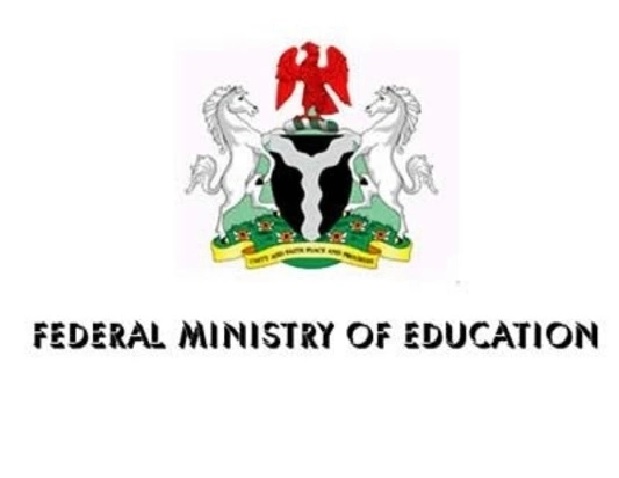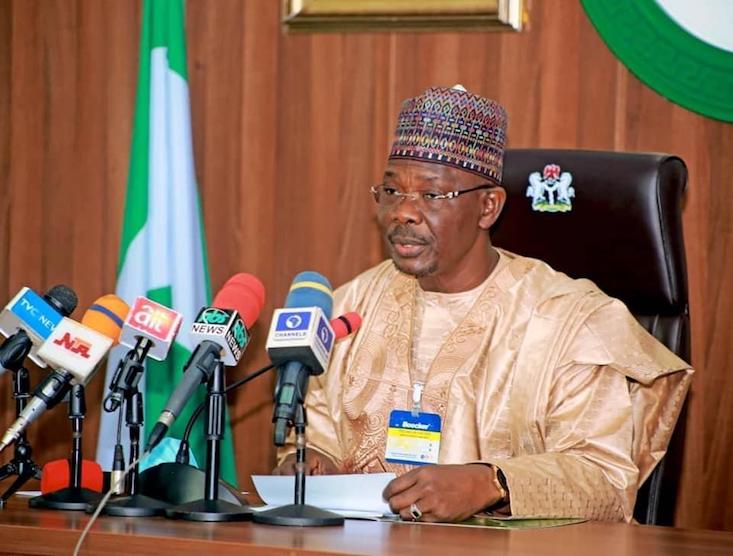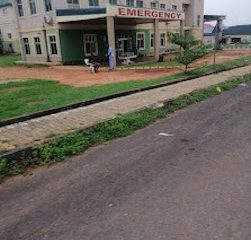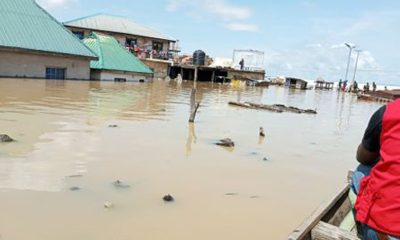NEWS
Plateau Calls for Calm amidst Killings of 27 Locals

From Jude Dangwam, Jos
The Plateau State Government has called for calm among citizens of the state following the unprovoked attack on Bidi (Jebu) community of Tahoss village in Riyom Local Government Area of the state.The state Commissioner for Information and Communication Rt.
Hon Joyce Lohya Ramnap said the state government is deeply saddened by the unfortunate attack of Monday, 14th July, 2025, which led to the loss of lives and properties. According to her, “This senseless act of violence by yet to be identified gunmen is strongly condemned and unacceptable.Government sympathizes with the families of the victims and all those affected by this tragic incident.”His Excellency, the Executive Governor of Plateau State, Barr. Caleb Manasseh Mutfwang has directed security agencies to intensify surveillance and bring the perpetrators to justice through additional deployment of troops.”Government is appealing to the people of Bidi, Sopp, and surrounding communities to remain calm, be vigilant, avoid any form of retaliation,report any suspicious activities to authorities and cooperate with security agencies.”Security remains our collective responsibility, and the Government is committed to ensuring the safety and security of all citizens.” The Commissioner noted.Recall that the National Secretary General of Berom Youth Moulders-Association (BYM) Bature Iliya Adazaram in a statement on Wednesday disclosed that 27 people were murdered by the rampaging attackers.The statement reads, “The Berom Youth Moulders-Association (BYM) is, again, saddened, enraged, and deeply pained by the cold-blood murder of 27 of our people, mostly children and women in Bindi/Jebu village of Tahoss Community, Riyom Local Government Area, in the early hours of today, Tuesday, 15th July 2025.”This attack, which took place at about 4:00am and lasted up to 6:00am is another round of terrorism and banditry attributed armed Fulani, who hailed from Bangai-Fulani, Ganawuri and other places, numbering in hundreds that security deployment couldn’t sizeable contend. Devastatingly, this singular incident adds to the growing atrocities committed by the killer-Fulani against the Berom people and other Nigerians. It is, indeed, a direct and brutal reminder that our lives do not deserve protection in the eyes of those who are constitutionally empowered to guarantee our safety despite being paid by our hard-given tax.”What happened in Jebu this morning is summarily a usual Fulani crime against humanity deliberately carried out in the watch of some security agents that are said to have compromised by colluding with the attackers.” He notedAdazaram disclosed that during an on-the-spot assessment at the scene of the attack, eyewitnesses under anonymity commended the Unit Commander of Operation Safe Haven-OPSH stationed at Sopp for their gallantry role demonstrated in repelling the attackers from one end, but also registered their loss of confidence in the reinforcement team of the OPSH that came and stationed itself by the roadside, where the massacre was perpetrated even up to 6:00am.”The unforgettable mass killing is, no doubt, debilitating the early trust we have built in the Operation Safe Haven-OPSH, which we had believed will continue working according to the matching order issued by President Bola Ahmed Tinubu that terrorist elements should be crushed.“Surprisingly, we are witnessing the renewal of killings as happened during the 8 years of President Mohammadu Buhari, which could best be described as collusion and complicity paved way for genocides and alarming displacements meted out on our people.”The disposition and utter neglect exhibited by the reinforcement team deployed is nothing other than saboteurs to the achievements and public confidence in the security system which, in essence, is counterproductive to the the good intentions of the President and the Executive Governor of Plateau State, Caleb Manasseh Mutfwang, who are after securing a peaceful environment for all persons irrespective of ethno-religious affiliations. “What baffles us most in this avoidable tragedy is the fact that security agents had prior knowledge of the planned attack as the Fulani and their cohorts, who are believed to be the hundreds hired bandits were seen moving in amidst of thousands Cows grazed on farmlands at Jebbu and neighbouring villages, just to be visited with terror from a nearby Fulani settlements and no attempt to effect any arrest is what we gaze at now. This gross dereliction of duty has once again cost us precious lives men, women, and children murdered in their sleep.” He recalledThe Chief Scribe further stressed that “Aside the mass killings, the same Fulani went on rampage of mass mow down of crops last night in Jol, Bachi, Rinyan and other places while the attack was ongoing. This is suggestive of the hundreds of the armed men brought in addition to the ones that have been on ground in places such as Fass, Mahanga, Shong, Rakweng, Sharu, Diyan-Hei, Hawan-Kibo, amongst others, wherefrom the armed groups are reportedly stationed.”Another disturbing fact is that the Jebbu/Bindi lies by the roadside to Abuja and a military checkpoint of the Special Task Force (STF) not up to a kilometre away from Jebu. The attackers did not drop from the sky. They came with confidence, operated freely and left without challenge at the direction, where the reinforcement team deployed stationed itself like in previous cases recorded in some communities of Riyom prior to the emergence of the current administration. This confirmed our long-held suspicion of complicity or calculated indifference on the part of some of the security operatives whom we call for investigation.” He statedThe youth leadership called for an urgent and independent investigation into the role and inaction of the Reinforcement Task Force to shoot only 3 gunshots and nothing more during and after the Jebu massacre.”We call for an immediate investigation, arrest and possibly the prosecution of those behind the killings both the foot soldiers and the financiers many of whom are believed to have hailed from Bangai-Fulani and other aforementioned settlements”Deployment of proactive, community-partnered security frameworks to prevent further carnage. Since rustled Cows are alway compensated whether or not established, the BYM also calls for N10 Million compensation on each person killed, and provision of relief and roofing materials to the surviving victims as roofing is also public.”Military should desist from accompanying Fulani to graze as that would give rise to the collusion and complicity in the ongoing killing and farm destruction”This is a defining moment; if the government fails to act now, history will remember it as the era when evil thrived while the authorities concerned watched. The blood of the innocent in Jebu cries for justice and it must not be in vain.”To our people: we mourn, but we must not be broken; we must speak out, get organized, and defend our land, our heritage, and our very right to life” the Secretary General charged the natives.
NEWS
What’s Going on with Education in Nigeria?

By Dakuku Peterside
Walk into almost any public school in Nigeria, and you feel the weight of history pressing down on the desks. Much of the system still operates to the rhythm of colonial-era regulations and syllabuses, which were conceived for a world that no longer exists.
The design, the assumptions, the teaching style—all of it points backwards. Students memorise facts to pass exams, teachers rush to “complete the syllabus,” and education officials track school success by the number of children registered, not by what or how they learn. The result is a production line that manufactures certificates but struggles to produce thinkers, innovators, or adaptable workers.Across the country, you hear the same complaints from employers: graduates who struggle with writing, problem-solving, collaboration, or basic digital skills. The disconnect is no longer anecdotal—it’s structural. It is an indictment of decades of denial, neglect, and inertia.Despite the deep-rooted problems, there’s a sense of optimism in the air. The 2024/2025 school year didn’t just bring new speeches and slogans, but also new tools—something that has long been missing from Nigeria’s education reforms: reliable, accessible, and actionable data. Until now, education planning in Nigeria was akin to weather forecasting without satellites. Budgets were allocated based on guesswork, and staffing decisions were influenced by local politics and exigencies rather than the needs of students. Dropout rates, learning outcomes, and school performance were largely unknown. However, with the advent of data-driven reform, even the most well-meaning interventions now have the potential to deliver results.But the fog is lifting, and what we’re beginning to see is as sobering as it is transformative. In the pilot phase of the Nigeria Education Information Management System (NEIMS), a digital infrastructure that collects and stores schools and individual student records, data from 11 states showed that approximately 12 million children were enrolled in primary school. Yet by junior secondary school, that number had dropped to 1.76 million, and only 1.23 million made it to senior secondary school. Nearly 9 million children disappeared from the system between Primary school and JSS/SSS. For decades, these gaps were obscured in averages or attributed to vague notions of poverty or culture. NEIMS is making the crisis real, personal, and measurable.What was once a distant problem is now a national emergency, starkly depicted in charts and decimals. These numbers don’t just represent policy failure, but also individual dreams cut short. Every dropout is a lost opportunity, a potential health worker, teacher, engineer, artist, or entrepreneur denied a future they were never properly introduced to. Girls are forced out of the system due to early marriage, household chores, or distance from schools. Boys drift into informal jobs, street vending, or crime. And now, for the first time, we can see the dropout spike in real-time. The Nigeria Education Information Management System (NEIMS) has illuminated the extent of our past failures.At the heart of this shift is not just data for the sake of data, but a recognition that without evidence, reform is merely rhetoric. NEIMS, championed by the Minister for Education, Dr. Tunji Alausa, is Nigeria’s first serious attempt to build a nationwide, cloud-based, student-centred data system. Each child has a digital profile tracking their academic progress, behavioural records, attendance, health, and contact history. Teachers, school heads, ministry officials, parents, and even students themselves have role-based access to this information. This isn’t just a dashboard; it’s a lifeline for planning, equity, and accountability.Why does this matter so much? For the first time, we have education data across all levels of Nigeria’s education sector to support decision-making, policy analysis, planning , monitoring and management. Education planners can track precisely how many girls in Zamfara transitioned from Junior Secondary School 3 (JSS3) to Senior Secondary School 1 (SS1). School leaders in Bayelsa can identify precisely how many desks are missing before the next academic year. Because curriculum developers in Abuja can analyse where children consistently underperform and target support accordingly. Because parents can follow their children’s academic and behavioral growth, and teachers can tailor interventions for those at risk of falling behind. This is a quiet revolution—technical, yes, but also deeply human.Yet, as with any good data system, NEIMS is not just revealing problems. It’s also helping us ask better questions. For example, why are so few students choosing technical and vocational education (TVET)? In the same pilot data set, only about 63,000 students across the 11 states enrolled in technical colleges or vocational training centres, despite widespread demand for skills in construction, ICT, agriculture, and creative economy. This gap isn’t just an education issue — it’s a labour market crisis in slow motion. We are producing manygraduates who struggle to find employment, while employers face difficulties in finding skilled technicians, artisans, and service providers. It is a perfect storm of misalignment.Then there’s the curriculum itself. Even for those who stay in school, what they learn often bears little relation to what the economy requires. The national curriculum, rigid and outdated, still treats subjects such as entrepreneurship, coding, environmental literacy, and financial planning as optional or peripheral. The result is a generation of young people graduating with theoretical knowledge that does little to prepare them for modern jobs or civic life. We cannot discuss job creation or economic diversification without addressing this disconnect.Dr Alausa’s approach is not to overhaul the system overnight but to let data guide every step of change. His team is prioritising technical and vocational pathways as a legitimate and respected alternative for students who cannot — or choose not to — follow the traditional academic route. New funding and partnerships are being directed toward making TVET more accessible, aspirational, and aligned with industry needs. Online schooling is also being introduced for junior and senior secondary students, particularly in areas such as conflict zones, urban slums, coastal regions, and nomadic communities. By expanding access through technology, the system can reach children whom the traditional brick-and-mortar school model has long abandoned.While public schools dominate headlines, non-state schools (NSNs) — including faith-based, private, community, and home-school networks—teach an estimated 40 per cent of Nigerian children. Their growth has been explosive but uneven, with quality ranging from world-class to woeful. For years, they have operated in a grey area — serving a growing portion of the population but without consistent standards or oversight. The new National Policy on Non-State Schools (NPNSN) recognises their essential role, sets minimum standards for infrastructure, teacher qualification, and safety, and provides a regulatory framework to improve quality, safety, and collaboration. It also introduces a voucher system for out-of-school children enrolled in accredited non-state schools—a bold move toward inclusive financing. The message is clear: the government welcomes help but insists on rules.Meanwhile, reform is being localised and humanised through the Universal Basic Education, School-Based Management Committee and School Improvement Programme (SBMC-SIP). This initiative empowers communities to take real ownership of their schools by enabling them to manage small-scale infrastructure and accountability projects. Alongside this, the Teacher Professional Development (TPD) strategy seeks to rebuild the capacity of educators through new guides, peer mentoring, and a modular training rollout that supports the 2025/2026 curriculum shift. After all, no education system can rise above the quality of its teachers.By 2030, we should be able to log into NEIMS and see transition rates above 90 per cent in every state. We should see tripled enrolment in vocational education, gender parity in science classrooms, rising national assessment scores, and a decline in dropouts across every demographic. If the numbers stay stagnant, we will know that the momentum has been lost. That is the power — and discomfort — of real-time data: it holds us accountable to the children behind the statistics.For too long, Nigeria’s education debate has swung between despair and denial. The real task now is to occupy the hard but hopeful middle ground of stewardship — refusing to romanticise the past but also resisting cynicism about the future. That means rejecting the fantasy that reform will be easy — but also refusing the excuse that change is impossible. Stewardship means celebrating civil society tutors who coach girls after farm chores, critiquing budgets that underfund rural teacher housing, asking politicians for evidence rather than platitudes, and — above all — letting numbers guide our outrage and our hope. It means investing in data not as an end in itself but as a mirror that tells us who we are, and a compass that shows us where to go. It means elevating the voices of parents, teachers, and learners, not just policymakers. And it means asking more complex questions every year, not fewer.For the first time in a generation, the tools to do so are on the table. The servers are spinning, the dashboards are live, and the pilot data are whispering their truths. We are at a fragile but undeniable moment. What remains is collective resolve: from ministry war rooms in Abuja to chalk-dust-filled classrooms in Akwa Ibom, from software developers in Lagos to parent councils in Bauchi. If we listen to the data — and one another — we may yet turn Nigeria’s vast education deserts into fields of possibility, where every child’s potential is mapped, measured, and nurtured. If we choose to listen — carefully, consistently, courageously — then Nigeria may finally build an education system that doesn’t just enrol children but uplifts them. Not just a factory of certificates, but a ladder to opportunity. Not just a promise, but a plan. And this time, the plan is backed by numbers. The moment is fragile, but it is real. And it is ours to lose.Dakuku Peterside, a public sector turnaround expert, public policy analyst and leadership coach, is the author of the forthcoming book, “Leading in a Storm”, a book on crisis leadership.NEWS
Reps Vow to Ensure Timely Justice Delivery in FCT

By Ubong Ukpong, Abuja
The House of Representatives on Wednesday, said that timely justice delivery in the Federal Capital Territory (FCT), was not negotiable, vowing to do everything possible to ensure it.Chairman House committee on FCT Judiciary, Rep. Adamu Gamawa, disclosed this during a public hearing on two bills in Abuja.
The first bill bordered on constitutional amendment which has to do with the increase in the number of Judges in the FCT. The intention was to lessen the burden of cases judges have to daily contend with, speed up justice delivery and reduce the length of adjournments among others.The second bill was an establishment bill of lower Courts for the FCT, Abuja with jurisdiction over civil and criminal causes and matters.Gamawa affirmed the resolve of the House of Representatives to make Justice not just accessible but available to all irrespective of class.”It is the vision of the Hon. Speaker that access to justice is made available and affordable to all and sundry in the FCT.”Such that no one would have any reason to take the laws into their hands as justice would be timely,” he said.He reiterated the House commitment to the functional judiciary, and said a strengthened judicial system was key to restoring public confidence in the judiciary.According to him, in line with this noble vision, therefore, the two bills under consideration today would be examined.He said that the Public hearing would therefore be the platform to discuss constructively and to cross fertilize knowledge and ideas, thereby getting the best law that would achieve set goals.The Committee Chairman said that the intention was to make access to justice simple and fast, thereby making the workload of our judges less cumbersomeThe Speaker of the House of Representatives, Rep. Abbas Tajudeen said that the Public hearing was critical in enhancing judicial reforms.Speaker Abbas, represented by the Deputy Minority Leader, Rep. Aliyu Madaki restated the commitment of the House to the rule of law and fair justice administration.The Speaker who said that reforms in the country’s judicial system was necessary, said it was also very urgent.The President of the Nigerian Bar Association (NBA), Afam Osigwe said that the NBA was in support of the Bill.Osigwe however solicited for a shift in the customary laws, demanding the expungement of section 16 of the principal Act.NEWS
SEC Committed to Promoting Innovation, Safeguarding Investments – Agama

By Tony Obiechina, Abuja
The Director General of the Securities and Exchange Commission (SEC), Dr. Emomotimi Agama, has reaffirmed the Commission’s commitment to fostering innovation in the capital market while ensuring the security of investors’ funds.Agama, who spoke during his keynote address at the Comercio Partners H2 2025 Outlook event, said the SEC is actively engaging with fintech startups, blockchain developers and quantum technology researchers to craft regulatory frameworks that balance innovation with investor protection.
He noted that the world is at a critical turning point where traditional models of global trade, finance, and investment are being transformed by rapid technological advances, shifting geopolitical landscapes, and the emergence of groundbreaking innovations such as quantum computing, artificial intelligence, and blockchain.“For Nigeria and the broader African continent, this presents both unprecedented opportunities and formidable challenges”, he added.He explained further: “For decades, global trade has been the backbone of economic growth, driven by comparative advantage, supply chain efficiencies, and multilateral agreements.“However, recent disruptions—from the COVID-19 pandemic to geopolitical tensions—have exposed the vulnerabilities of over-reliance on traditional trade models. As nations recalibrate their economic strategies, the focus is shifting toward innovation-driven growth. The rise of digital economies, decentralized finance (DeFi), and quantum technologies signals a new era where intellectual capital and technological prowess will define competitive advantage.”Agama, who described quantum innovation as the next frontier, said it encompasses “quantum computing, cryptography, and communication—promises to revolutionize industries from finance to healthcare. For capital markets, quantum computing could redefine risk modelling, asset pricing, and fraud detection, offering unparalleled speed and accuracy”.He stressed that the SEC Nigeria “is committed to fostering a regulatory environment that encourages innovation while safeguarding market integrity.We are actively engaging with fintech startups, blockchain innovators, and quantum researchers to develop frameworks that balance progress with investor protection”.He held that the future belongs to nations that invest in “STEM education and digital skills. Collaborations between academia, industry and government are critical to building a workforce ready for the quantum age.“Quantum innovation requires significant R&D investment. We urge private sector stakeholders to collaborate with the government in funding research hubs and pilot projects. “Africa, with its youthful population and untapped potential, can leapfrog into the quantum economy by: Leveraging blockchain for transparent capital markets; Adopting AI and big data to enhance financial inclusion and creating innovation sandboxes to test emerging technologies. “Nigeria, as Africa’s largest economy, must lead this charge. The SEC is exploring policies to support tokenized assets, digital securities, and green bonds—all aligned with a sustainable, tech-driven future”.
















